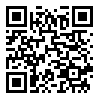Thu, Jan 29, 2026
| فارسی
1- Ph.D. Student in psychology, Department of Educational and Psychological Services, Nae.C., Islamic Azad University, Naein, Iran.
2- Assistant Professor, Department of Educational and Psychological Services, Nae.C., Islamic Azad University, Naein, Iran. ,Hassan.khoshakhlagh@iau.ac.ir
3- Associate Professor, Department of Psychology, Payame Noor University, Tehran, Iran.
4- Assistant Professor, Department of Health Psychology, Na.C., Islamic Azad University, Najafabad, Iran
2- Assistant Professor, Department of Educational and Psychological Services, Nae.C., Islamic Azad University, Naein, Iran. ,
3- Associate Professor, Department of Psychology, Payame Noor University, Tehran, Iran.
4- Assistant Professor, Department of Health Psychology, Na.C., Islamic Azad University, Najafabad, Iran
Abstract: (1418 Views)
Irritable bowel syndrome is a psychosomatic disorder that, in addition to physical problems, can be associated with anxiety, self-criticism, and other psychological problems. This study aimed to compare the effect of cognitive-behavioral therapy and schema therapy on thought-action fusion and self-criticism in irritable bowel syndrome patients. The research employed an experimental method with a pre-test–post-test design, including a two-month follow-up phase, and involved experimental and control groups. The statistical population included all patients with irritable bowel syndrome living in Qazvin city in 2022. Using convenience sampling methods, 48 people were randomly placed in three groups of 16. The research tools were Shafran et al.'s (1996) thought-action fusion scale and Thompson and Zuroff's level of self-criticism scale (LOSC) (2004). The experimental groups received Yang's schema therapy and Leahy's cognitive behavioral therapy in 9 sessions of 90 minutes once a week, and the control group did not receive any intervention. Data were analyzed using a multivariate analysis of covariance (MANCOVA). The results showed that both interventions were effective in reducing thought–action fusion and self-criticism, and that their effects remained stable during the follow-up phase. The results also indicated a significant difference between the effects of schema therapy and cognitive behavioral therapy on thought–action fusion and self-criticism, with schema therapy exerting a greater impact than cognitive behavioral therapy. Therefore, schema therapy and cognitive behavioral therapy can be used as efficient treatments to reduce thought-action confusion and self-criticism in irritable bowel syndrome patients.
Article number: 2
Keywords: Cognitive Behavioral Therapy, Schema Therapy, Thought-Action Fusion, Self-Criticism, Irritable Bowel Syndrome
Type of Study: Research |
Subject:
Special
Received: 2024/03/28 | Revised: 2026/01/16 | Accepted: 2025/09/16 | ePublished ahead of print: 2025/09/21 | Published: 2025/12/31
Received: 2024/03/28 | Revised: 2026/01/16 | Accepted: 2025/09/16 | ePublished ahead of print: 2025/09/21 | Published: 2025/12/31
Send email to the article author
| Rights and permissions | |
 |
This work is licensed under a Creative Commons Attribution-NonCommercial 4.0 International License. |




